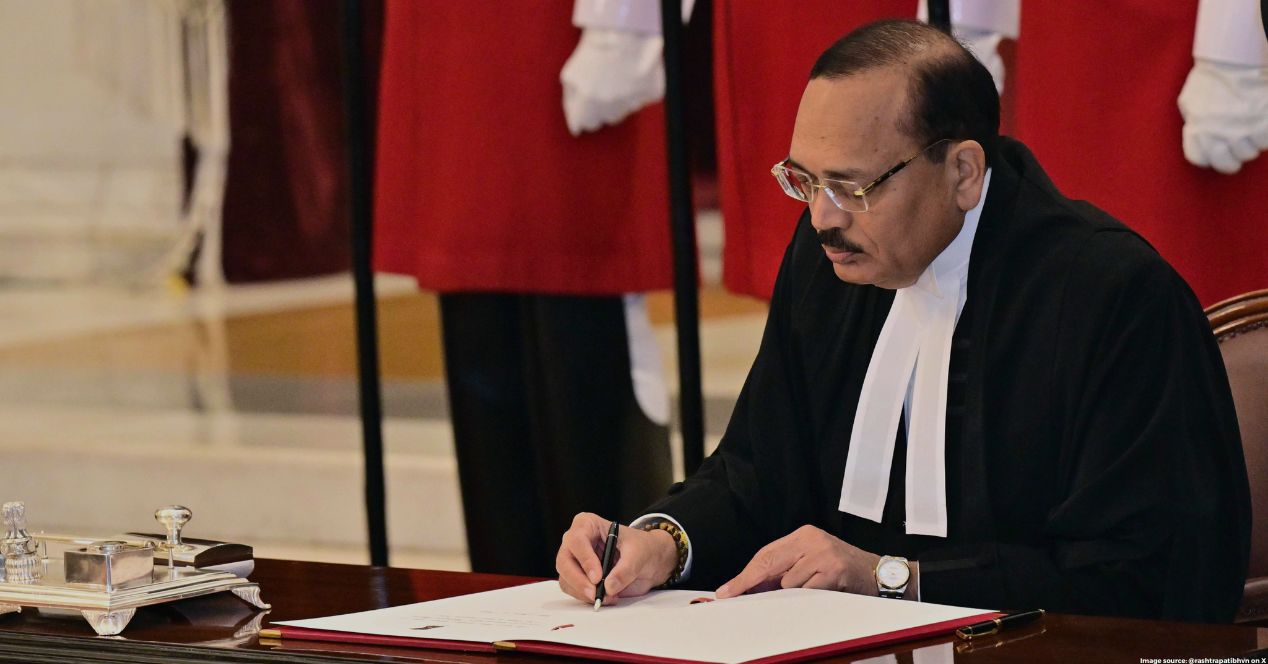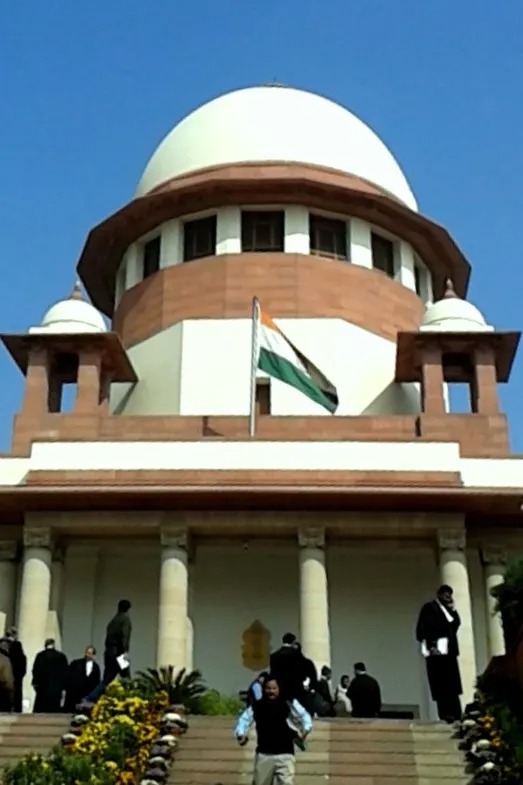Mitter, J.@mdashThis matter comes before us for consideration as to whether, in the exercise of our discretion u/s 149 of the Code of Civil Procedure, we should allow the appellant to put in the deficit court-fees.
2. It appears that the appeal was filed with a court-fee of Rs. 2 only, whereas the court-fee payable is a much larger sum of Rs. 975, according to the Stamp Reporter''s report.
3. The ground as to why the appeal was filed with an extremely inadequate court-fee of Rs. 2 only is set out in paragraph 5 of the petition of the Appellant. It states that the said appeal was filed on affixing a court-fee of Rs. 2 only, as the Petitioner could not, in spite of all her attempts, raise money to pay for the full court-fee, inasmuch as almost all her landed properties were covered by the mortgage decree, and that she had no other means left to meet the same. In other words, the Petitioner pleaded poverty and her inability on that ground to pay the court-fees on the day the memorandum of appeal was presented.
4. It has been argued on behalf of the Appellant that this is a circumstance which ought to induce us to exercise our discretion for giving some time to the Appellant to put in the amount of deficit court-fee; and it is stated that, by reason of the provisions in the new Section 149 of the Code of 1908, the Appellant is entitled to ask us to exercise the said discretion, in the circumstances of the present case. In this connection, reliance has been placed on a decision of the Bombay High Court in the case of Achut Ramchandra Pai v. Nagappa Bab Balgya ILR (1913) 38 Bom. 41. That decision no doubt supports the contention of the Appellant. The learned Judges in that case took the view that, having regard to the change in the Code of 1908, the words of limitation which existed in Section 582A in the old Code of 1882 having been removed, the legislature by the new provisions intended that the court should have a free and unshackled discretion in this matter and that there was no ground for holding that Section 149 must be restricted to cases where there was a bona fide misunderstanding of the law as to valuation. There is no decision of this Court on this point. It may be pointed out that all the other High Courts in India have dissented from the Bombay view. Reference may be made in this connection, to a decision of the High Court of Madras in the case of Narayana Rao v. Sheshamma (1914) 27 Mad. L.J. 677 (678) : 26 Ind. Cas. 33 (33). The Madras High Court has gone so far as to hold that the new Section 149, as interpreted by the Bombay High Court, has not been correctly understood. The learned Judges observed thus:
Then we come to the present Code which for Section 582A substituted a new Section 149 not confined to memoranda of appeals but giving the court a discretion in all cases to allow the payment of the fee at any time. This, in our opinion, is the section which governs the present case, and with respect we are not satisfied as to the correctness of the ruling in Achut Ramchandra Pai v. Nagappa Bab Balgya I.L.R (1913) . 38 Bom. 41. that under the present Code Order VII, Rule 11 is rendered applicable to memoranda of appeals by Section 148 so as to make it incumbent upon us to admit memoranda out of time where the conditions of the rule are complied with.
5. The same view has been taken in a decision of the Patna High Court in the case of Ram Sahay Ram Pande v. Lachmi Narayan Singh (1917) 3 P.L.J. 74, 76. Sir Edward Chamier, Chief Justice, and Mr. Justice Mullick held, in that case, that where an Appellant has deliberately, and to suit his own convenience, paid on his appeal an insufficient court-fee, the court is not bound to receive the appeal and give the Appellant time to make good the deficiency. Even if the court has power to receive such an appeal, and allow time for the deficiency to be made good, it would be an unreasonable exercise of its jurisdiction to do so. The learned Judges observed:
Section 149 of the present Code takes the place of Section 582A of the Code of 1882 and vests a very wide discretion in the court, but, in my opinion, Section 149 should not be construed in such a way as to nullify the express provisions of Section 4 of the Court-fees Act. When the amount of the court-fee payable is open to doubt, or the amount of the fee cannot be ascertained by the court till the record is received, or it appears that the Appellant has made an honest attempt to comply with the law, the court may properly receive the appeal and allow time for the deficiency, if any, to be made good. In the cases before us the Appellants have deliberately, and to suit their own convenience, paid on their appeals insufficient court-fee, in fact they had paid only a small fraction of the fees which they admit are payable by them. In such cases the court is not, in my opinion, bound to receive the appeal and give the Appellant time to make good the deficiency. Assuming that the court has power to receive these appeals, and allow time for the deficiency to be made good, I think we should be exercising our discretion in an unreasonable manner if we were to do so.
6. The Bombay High Court, evidently, overlooked the provisions of Section 4 of the Court-fees Act, which runs as follows:-
No document of any of the kinds specified in the first or second schedule to this Act annexed, as chargeable with fees, shall be filed, exhibited, or recorded in, or shall be received or furnished by, any of the said High Courts in any case coming before such court in the exercise of its extraordinary original civil jurisdiction ;
7. The language of this section, as was pointed out in an early decision of this Court, in the case of Lakhi Narain Jagdeb v. Chowdhury Kirtibas Das (1913) 18 C.L.J. 133., is imperative and enacts that no document shall be received unless it bears court-fees of the requisite value.
8. It is true that subsequently Section 149 has been introduced in the Code of Civil Procedure, and Section 149 undoubtedly vests in the court a discretion as to whether appeals filed with insufficient court-fees should be allowed to be received when proper court-fees are paid within the time allowed by the court. The question is one of discretion and should be exercised on correct judicial principles, as has been indicated in a recent decision of their Lordship of the Judicial Committee of the Privy Council in the case of Faizullah Khan v. Mauladad Khan (1929) ILR 10 Lah. 737 (743) : L.R. 56 IndAp 232 (237). In that case, it was pointed out by Lord Shaw in delivering the judgment, that, in the special circumstances, that case was preeminently one for the exercise by the judicial authority of the discretion for giving an opportunity to add to the amount lodged the extra amount required or for deferring the question of the amount of fee under the Court-fees Act until final value was ascertained. That was an appeal from a decree with regard to accounts. Then their Lordships referred to Section 149 of the CPC and said:
It will be observed that that discretion extends to the whole or any part of any fee prescribed and can be exercised at any stage in the case, while finally, upon the extra payment being made, then the document is to have the same effect as if it had been paid in the first instance.
9. It can hardly be said that the discretion should be exercised in a case where the ground urged is that of mere inability to pay the requisite court-fees on the day the memorandum of appeal was presented to this Court. The Allahabad High Court has also taken the same view. Sir Shah Muhammad Sulaiman, the Acting Chief Justice, in the case of Brijbhukhan v. Tota Ram (1928) ILR 50 All. 980., held that a court is not bound to accept a memorandum of appeal when it has been brought to its notice that the memorandum is insufficiently stamped. The concession contemplated by Section 149 of the CPC cannot be claimed as of right. No doubt, the learned Chief Justice proceeds to observe that, if an insufficiently stamped memorandum of appeal is accepted by inadvertance. time may be given to the Appellant to supply the deficiency. But if the court is aware ab initio of the insufficiency of the stamp it ought to return the memorandum to the Appellant in order that he may, if the case admits, re-present it properly stamped and apply for an extension of time u/s 5 of the Indian Limitation Act; and the learned Judge refers to the practice of some junior vakils of the Allahabad High Court to file appeals with insufficient court-fee stamps, knowing that they are insufficient, with a view to save limitation. The learned Judge further proceeds to observe that such deliberate attempts to get round the provisions of the Court-fees Act should not be tolerated.
10. The same view has been taken by the Lahore High Court, and the latest decision is the decision of a single Judge of that Court, which refers to the earlier decisions. It is reported in the unauthorised reports, in the case of Gursaran Das v. District Board, Jullundur [1927] AIR (Lah.) 884 : 102 Ind. Cas. 615., where Mr. Justice Zafar Ali, after pointing out that where the Appellant''s counsel acted with gross negligence in valuing the appeal, and thus it was presented with insufficient court-fees and the deficit was made good beyond limitation, held that the delay in making good the deficiency, that occurred in consequence of clear negligence, cannot be condoned; and referring to the Bombay decision said:
The Appellant''s counsel relied on Achut Ramchandra Pai v. Nagappa Bab Balgya (1913) ILR 38 Bom. 41., but the charitable view taken in that case has not been followed by any other High Court including our own and it was dissented from in Narayana Rao v. Sheshamma (1914) 27 Mad. L.J. 677 : 26 Ind. Cas. 33.
to which reference has already been made. The Court of the Judicial Commissioners, Nagpur, has also taken the same view in a recent case in Patil Shyamlal v. Gourishankar [1929] AIR (Nag.) 294 ; 119 Ind. Cas. 700.
11. We think, therefore, that the ground, which was put in paragraph 5 of the petition of the Appellant in the present case, viz., inability to raise funds, is not a sufficient ground which would entitle us to exercise our discretion. But, having regard to the Bombay decision and there being no clear authority so far as this Court is concerned, we, in the special circumstances of the present case, consider that we should exercise our discretion and allow time to the Appellant to put in the deficit amount of court-fee within a fortnight from this date.
12. There is another prayer in this application, which is based on an allegation made in paragraph 11, that the Petitioner Khatumannessa Bibi has been suffering from mental infirmity, and, as the guardian-ad-litem appointed in the lower court has declined to act as next friend in this Court, she may be permitted to be represented in this appeal by her relation Rashed Ali Mallik as her next friend. We grant this prayer and direct that Rashed Ali Mallik be allowed to prosecute this appeal on behalf of the said Petitioner Khatumannessa Bibi.
McNair, J.
I agree.

